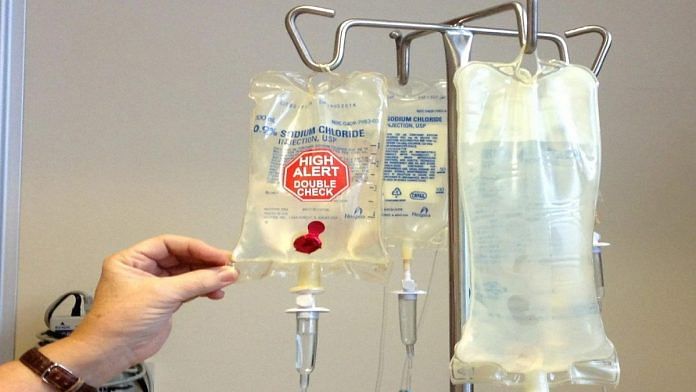Bengaluru: A small clinical trial of 14 rectal cancer patients with a particular genetic mutation, who were all administered the same drug, has resulted in a historic first in cancer research — remission in each patient, with the cancer disappearing below detectable levels.
The phase 2 trial, conducted at Memorial Sloan Kettering Cancer Center in New York, was a form of immunotherapy where the treatment utilises the body’s own immune cells to attack cancer cells like they do pathogens.
It involved patients with localised rectal cancer that had not spread to other tissues.
In every one of the 14 patients, the cancer disappeared completely without the need for standard treatments of chemotherapy, radiation, or surgery. The patients have continued to remain free of cancer for a total of two years.
The trial is still ongoing, and is recruiting more volunteers who have cancer with the mutation, but the findings from the first 12 patients were so astonishing that they have been presented at conferences and also published this week in The New England Journal of Medicine, a US-based, peer-reviewed medical journal.
The trial was sponsored by GlaxoSmithKline, one of the companies manufacturing the drug used in the trial, dostarlimab.
This is the first time in the history of cancer research that an experimental drug caused every single participant in a trial to go into remission and stay that way.
Also Read: 1 in 7 women aged 50-74 who undergo mammogram ‘overdiagnosed’ for breast cancer, finds US study
Checkpoint inhibitor therapy
More than 700,000 new cases of rectal cancer are recorded globally each year. This cancer can result in bowel and bladder dysfunction, incontinence, altered sexual ability, and more.
The researchers conducted the experiment with the objective of identifying a subset of people on whom immunotherapy is most efficient and beneficial, and previous studies had indicated that a subset of colon and rectal cancer patients faced especially good success rates.
These patients have a genetic mutation, which leads to a specific genetic makeup within the tumors that they carry. These tumours with these mutations are referred to as being mismatch repair-deficient (MMRd).
Cancerous tumours hide in our bodies by stimulating pathways or a series of actions called immune checkpoints. These are normally a set of molecular actions that prevent the immune system from attacking the body’s own cells indiscriminately. When these pathways are tricked into being formed by the cancer cells, they become invisible to the immune system cells.
According to the study, drugs that are classified as checkpoint inhibitors prevent certain pathways used by cancer cells from forming, enabling the immune system’s cells to attack cancer cells directly.
This form of immunotherapy used to fight cancer is known as checkpoint inhibitor therapy.
Dostarlimab, the checkpoint inhibitor drug used in the trial, is a monoclonal antibody which is an inhibitor to the checkpoint called programmed death 1 (PD-1). The anti-PD-1 drug was given every three weeks for six months to stage II and III rectal cancer patients with the genetic mutation.
The volunteers in the experimental therapy were expected to follow up with chemotherapy and radiation therapy as required, but had gone into complete remission without need for further treatment. Since the publication of the paper, two other patients have also gone into complete remission.
Next step — testing efficacy of immunotherapy on other cancers
The authors also wanted to discover the efficacy of immunotherapy on colorectal cancer patients due to the severe adverse effect on their quality of lives due to the location of the cancer.
In a statement issued by the Memorial Sloan Kettering Cancer Center, the authors urge anyone diagnosed with colorectal cancer (CRC) to get tested for the MMRd mutation, and enroll in checkpoint inhibitor immunotherapy trials if positive.
The mutation also occurs in other kinds of tumours, and the authors are now enrolling patients with gastric, pancreatic and prostate cancers in their trial.
Other forms of immunotherapy, such as CAR-T cell therapies have also shown tremendous promise in treating cancers.
(Edited by Gitanjali Das)
Also Read: Cure cancer, undo death: Punjab’s Christian ‘prophet, pastors’ offer miracles, compete with deras



